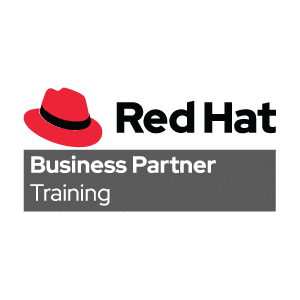Configure, manage, and troubleshoot OpenShift clusters and containerized applications.
The Red Hat OpenShift Administration II: Configuring a Production Cluster (Dcourse prepares OpenShift Cluster Administrators to perform daily administration tasks on clusters that host applications provided by internal teams and external vendors, enable self-service for cluster users with different roles, and deploy applications that require special permissions such as such as CI/CD tooling, performance monitoring, and security scanners. This Red Hat OpenShift course focuses on configuring multi-tenancy and security features of OpenShift as well as managing OpenShift add-ons based on operators.
The skills you learn in this course can be applied using all versions of OpenShift, including Red Hat OpenShift on AWS (ROSA), Azure Red Hat OpenShift, and OpenShift Container Platform.
This course is based on OpenShift Container Platform 4.12.








